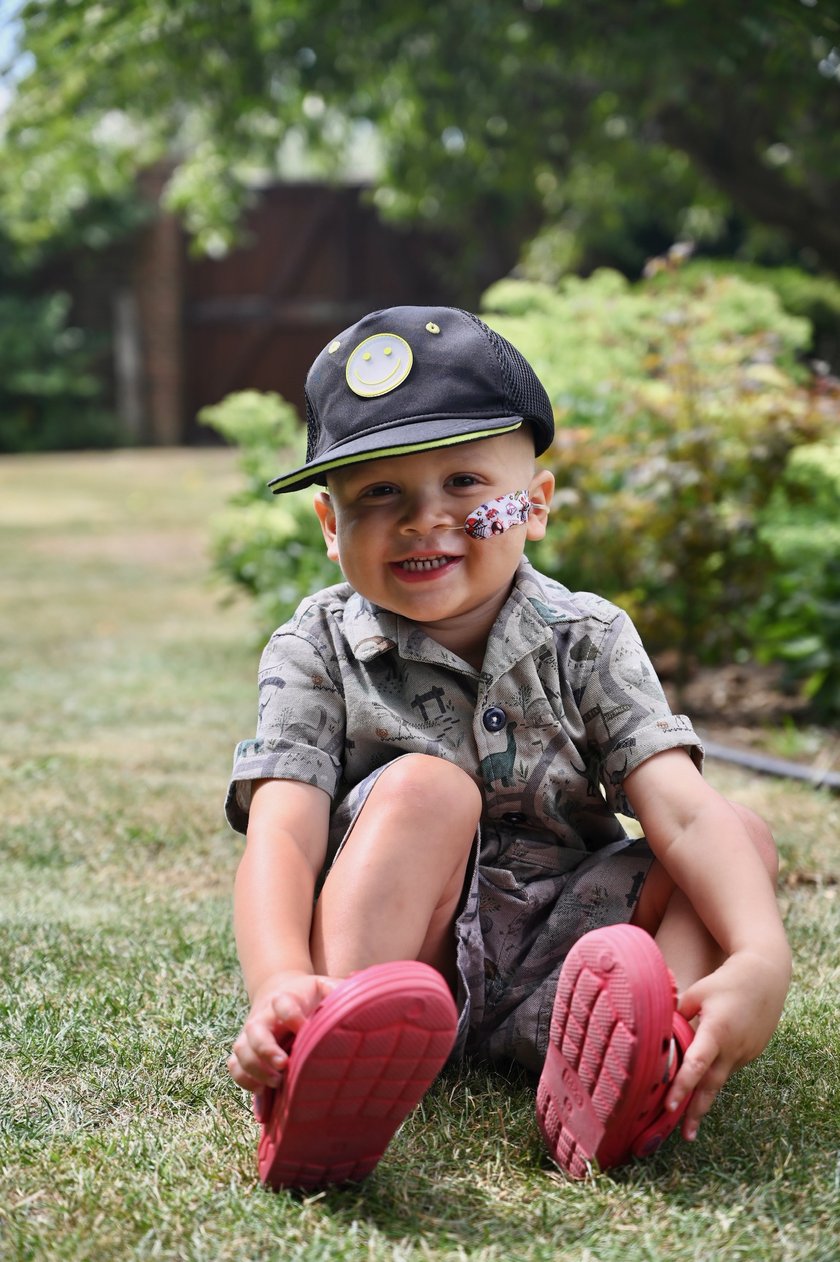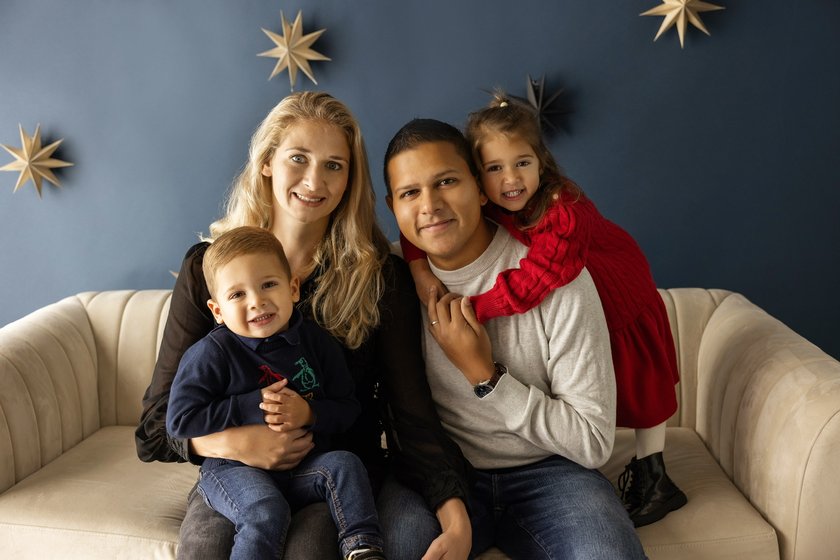A new type of cancer cell helps to explain why some children with leukaemia do not respond well to treatment. Researchers hope this discovery could lead to tests that allow families to avoid unnecessary chemotherapy and will inform the development of future therapies.
A study co-led by Dr Sam Behjati, revealed that some children with t-cell acute lymphoblastic leukaemia (T-ALL) have groups of cancer cells in their blood that are resistant to treatment. These cells carry a protein called ZBTB16, which could be detected by modifying existing clinical tests.

The discovery of this new type of cancerous T-cell is one of the most exciting findings of my career so far, and warrants urgent investigation so that it can be translated into clinical impact as soon as possible.
Dr Sam Behjati, honorary consultant paediatric oncologist at Addenbrooke’s Hospital and group leader at the Wellcome Sanger Institute
Dr Behjati, an honorary consultant paediatric oncologist at Addenbrooke’s Hospital, hopes that developing a test for these new cells will mean that children with these cells can avoid undergoing ineffective chemotherapy. He also hopes that further study of these cells could, in time, lead to targeted treatments that can destroy these cells.
Around 400 children in the UK are diagnosed each year with acute lymphoblastic leukaemia (ALL), a cancer of the blood and bone marrow. ALL has two forms B-cell (B-ALL), which is more common and easier to treat, and T-cell (T-ALL).
Around 1 in 7 cases (15%) of ALL are T-ALL, and these cancers are often more aggressive and harder to treat. Currently there is no way to predict how patients with T-ALL will respond to treatment and the standard approach is a four-week course of chemotherapy. In about 10% of cases, the cancer is resistant to treatment or the treatment fails.
Targeting these newly discovered cancer cells could lead to effective therapies for T-cell leukaemia that currently don’t respond to first-line treatment, something that children, and adults, living with this cancer urgently need.
Dr Sam Behjati
According to the results of the study, published today in Nature Communications, testing for ZBTB16 could help to detect treatment-resistant T-ALL so that children can avoid chemotherapy that is ineffective against these cells.

Understanding the genetic basis of health and disease is central to the vision of the planned Cambridge Children’s Hospital, the first specialist children’s hospital for the East of England. Professor Sam Behjati will lead the Children’s Cancer Centre as part of the state-of-the-art research institute embedded in the new NHS hospital; researchers will continue to use cutting edge genomics to help predict, prevent and treat childhood cancer and revolutionise our approach to children’s health.
Dr Behjati is also a group leader at the Wellcome Sanger Institute. The study was a collaboration involving Cambridge University Hospitals NHS Foundation Trust, Great Ormond Street Hospital NHS Foundation Trust, the Wellcome Sanger Institute and colleagues.
During the study the genomes of individual bone marrow cells from 58 children with T-ALL were analysed in detail. This revealed that some cancer cells in some children with T-ALL have an active gene that produces the ZBTB16 protein, which makes the cells resistant to treatment.
The team believe it should be possible to add ZBTB16 detection to existing clinical tests already used to help diagnose and treat people with T-ALL.
Being able to identify children who have T-cell leukaemia that will not respond to initial treatment on the day of their diagnosis has an immediate impact on their clinical care. While further clinical research is needed, the genetic marker we have discovered can also be identified using an already widely used test, meaning that it could be easily adopted into clinical care if proven effective.
Dr David O’Connor co-senior author at UCL and Consultant in Paediatric Haematology at Great Ormond Street Hospital
A wider analysis of genomes from hundreds of people with T-ALL showed that the gene can become active at different times during cancer development but still has the same effect on treatment resistance.
This research includes funding from Wellcome, Cancer Research UK, the Harley Staples Cancer Trust, the Agency for Science, Technology and Research, the Wenner-Gren Foundation, the Pessoa de Araujo family, The Little Princess Trust, the EMBO long-term fellowship, and the National Institute for Health and Care Research.
Jacob’s story

Three-year-old Jacob from Chelmsford, Essex was diagnosed with T-ALL in December 2024. Thankfully, he was transferred to Great Ormond Street Hospital, where he has responded well to the initial chemotherapy and his cancer is in remission.
Jacob’s parents, Alexandria and Animesh, recall waiting anxiously to see if he would respond to treatment, and believe that having the ZBTB16 test early on could have saved them months of stress and worry wondering whether the treatment would work.

Research like this is so important to help move towards a future where children can have the right cancer treatment more quickly. While we were fortunate that Jacob responded really well to his chemotherapy, we spent a number of months waiting for his bone marrow test results to come back.
If we had known from the beginning that this would likely be the case it would have provided us with some reassurance in what was a difficult time.
Jacob’s parents, Alexandria and Animesh

